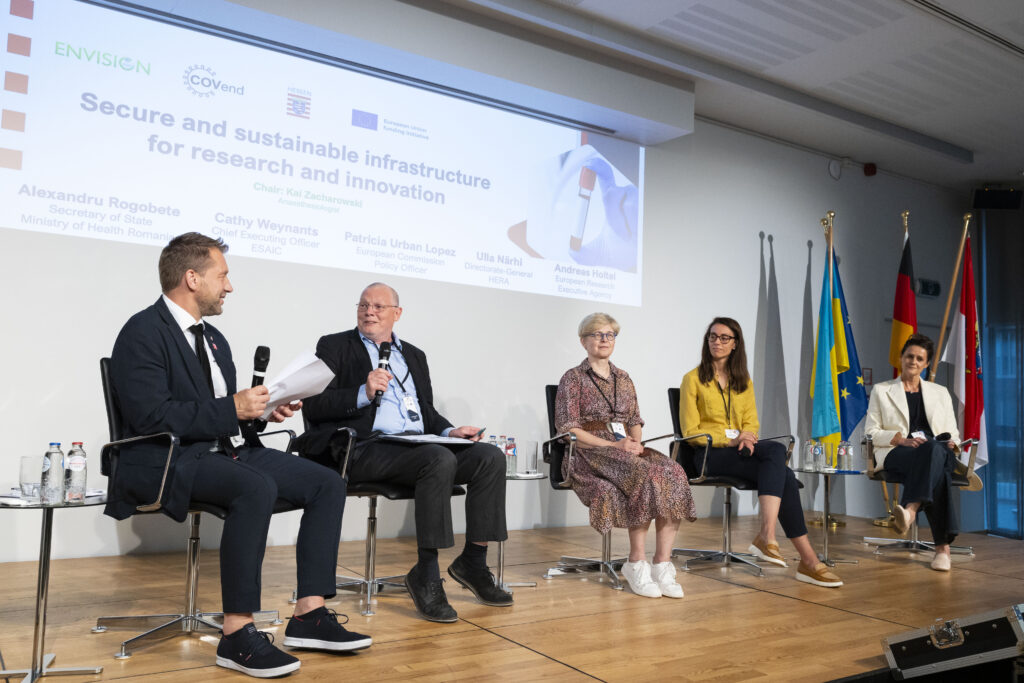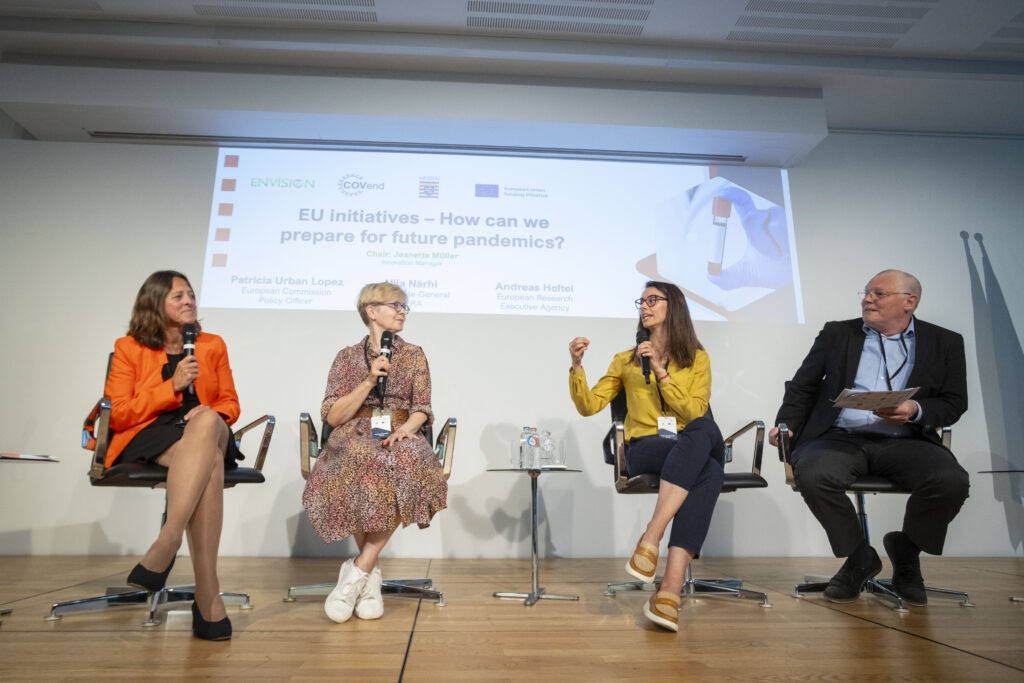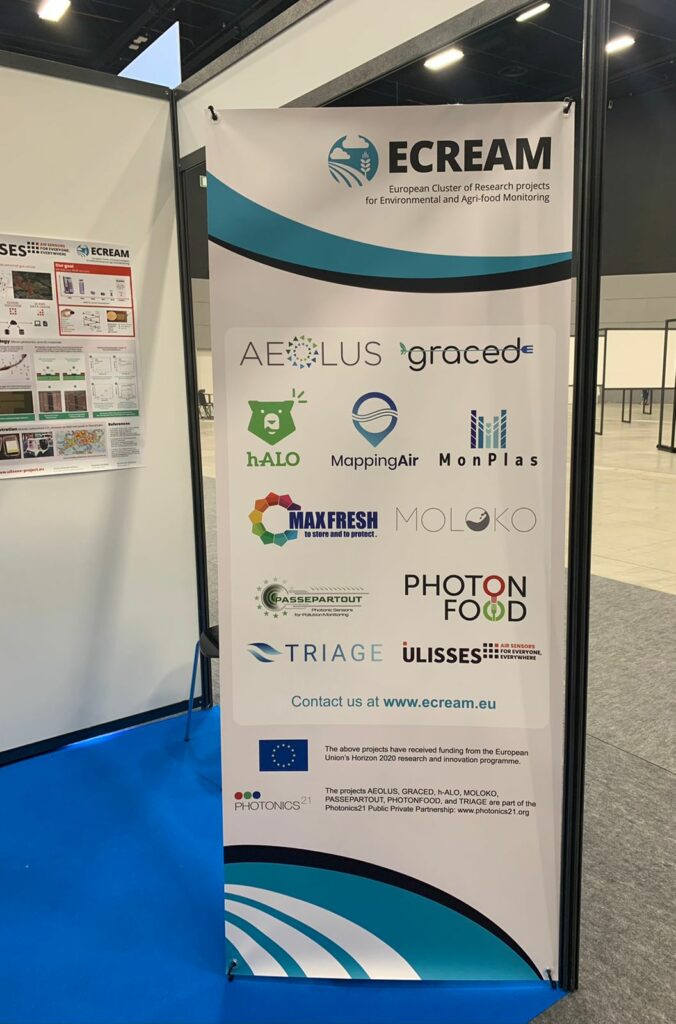Clustering in EU projects: how cluster events help maximise the impact of your research
26th September 2023 at 8:54 am
Recognising collaboration as a cornerstone of scientific progress, the European Commission fosters partnerships and knowledge exchange through its funding programmes for research and innovation like Horizon 2020 and Horizon Europe. Among the collaborative efforts promoted by the EU are so-called cluster events, typically joint workshops or conferences organised by one or several project consortia within a cluster. What exactly is a cluster in this context? And why are cluster events of strategic importance to the EU? Let us share our insights with you using concrete examples from our projects.
Clusters in EU projects
In the context of EU-funded projects, a cluster typically refers to a group or network of related projects that focus on a common research theme, topic, or area. The aim of forming a cluster is to facilitate synergies and knowledge exchange, ultimately accelerating scientific progress and innovation. When it comes to the way they are organised, not all clusters are alike: while some are formed ad hoc, for example, for a specific event, others are already defined before a group of funded projects starts. In the latter case, the cluster may involve several joint deliverables from the start. Whereas some clusters are defined by their members, i.e. projects, other clusters continue to exist regardless of departing members or the addition of new members.
Whatever the cluster type, one activity popular among clusters in general is the cluster event. Formats can vary from traditional conference formats to more interactive, dynamic setups involving workshop sessions, roundtables, and prototype demonstrations. The events are usually open not only to the cluster consortia but also to other interested external stakeholders, maximising the potential of a wider dialogue and impact.
Now, what’s in it for the EU, and what’s in it for you? In the following, we highlight three core benefits of cluster events to both the EU and Europe’s research community.
Promoting knowledge exchange
The global challenges we are facing today are complex and require bold solutions. The EU recognises that goals like the EU Missions and the UN’s Sustainable Development Goals can only be achieved by coordinated, collaborative actions.
Bringing together experts working on complementary or interrelated aspects of a particular field, cluster events are a great platform for knowledge sharing, exchanging best practices, and identifying potential new synergies through networking and personal interactions. This exchange of information not only prevents duplication of efforts but also helps people gain fresh perspectives and refine their approaches.
Working towards a common goal often means running into similar issues. A cluster event may come in handy in this case, offering an opportunity to discuss and find solutions to the same problems together. This is aptly illustrated by the cluster and policy event ‘Highway to Health’, jointly organised by our partners from the HORIZON projects ENVISION and COVend earlier this year. Connecting various COVID-19 projects and initiatives, the event’s main objective was to review the scope and benefits of COVID-19 actions and prepare the healthcare system for future pandemics. The event revealed one major common barrier: the low number of COVID-19 patients, i.e. study participants. Different stories about this challenge, told from several projects’ perspectives, proved encouraging and insightful to the COVend consortium and, undoubtedly, others. Discussing various approaches to tackle the problem, such as transforming the clinical study design, allowed the consortia to learn from each others’ experiences, acquire new ideas, and overcome hurdles together.


‘Highway to Health’, © Landesvertretung Hessen in Brüssel / Bernal Revert
Advancing the research-policy dialogue
Many EU projects align with the EU’s policy priorities, such as the European Green Deal or Europe’s Digital Decade, but bridging the gap between research and policy remains a challenge. The EU places great importance on the translation of research outcomes into policy recommendations and practical applications. As far as possible, science should inform policy decisions and drive real-world change.
Cluster events can provide excellent opportunities for researchers to initiate or advance the policy dialogue since they often involve discussions with policymakers, regulators, and representatives from funding agencies. The ‘Highway to Health’ cluster and policy event mentioned previously serves as one successful example; another comes from EXIMIOUS, one of the Horizon 2020 projects we are involved in as communications lead. EXIMIOUS is a member of the European Human Exposome Network (EHEN), the world’s largest project network studying the impact of environmental exposure on health. As part of EHEN’s scientific meeting this year, coordinated by the EXIMIOUS and LongITools projects, we at accelopment co-organised a public policy event with talks from invited speakers from the European Commission (EC) and the World Health Organization. An interactive session following the talks allowed the participants to engage in a real-time survey about communication and collaboration between researchers and policymakers as well as perceived barriers. The real-time survey results served as a good starting point for a discussion about the challenges of translating the findings of scientific publications into insights that could be used for policy development. Key outcomes of the event were the need to find a “common language” between science and policy, and the availability of the EC representatives to maintain an open exchange with the projects to provide guidance and discuss their policy contributions. Since the event, EHEN has been keeping up the exchange with the EC in preparation for upcoming policy briefs, the first one of which will address the EU’s Zero Pollution Action Plan. This outcome shows that the policy event played a helpful role in setting the crucial research-policy dialogue in motion for the EHEN projects. As Sylvain Sebert, coordinator of LongITools, stated about the event: “As the largest cluster of EU research projects focused on the environment and health, we can ensure our individual research is not just a ‘drop in the ocean’ for policymakers. EHEN’s collective evidence can effectively inform policies and initiatives which drive change to ensure a healthy exposome becomes the norm.”
Elevating visibility and impact
All EU projects address important challenges, but the impact of such projects ultimately depends on the successful dissemination of their results to a wider audience. The EU has an interest in ensuring that its investments yield visible results, demonstrating the value of EU funding for society.

Here, too, cluster events can serve as a powerful tool to increase a project’s visibility and impact. This is seen in the case of the Horizon 2020 project PHOTONFOOD, a member of the European Cluster of Research projects for Environmental and Agri-food Monitoring (ECREAM). The PHOTONFOOD consortium organised a cluster session at the scientific conference RME 2022 with talks with cluster members highlighting different aspects of food safety and quality testing. As a dedicated session integrated in the conference programme, it attracted attention and facilitated discussions among presenters and attendees from all angles on the research topic at a level that would not have been possible for standalone talks. This effect was further increased by joint announcements of the session and collective reporting during the event. Another example from the ECREAM cluster is the joint booth organised at the SPIE Photonics Europe 2022. None of the projects would have opted for a booth on their own as it needs to be paid, built up, and staffed with knowledgeable scientists to present the research. As a cluster initiative, the conference booth was not only feasible but also a success: Visitors interested in environmental and agri-food monitoring had the option to look at similarities and differences between different research approaches while the projects’ representatives also had the opportunity to network with visitors and each other.
accelopment and cluster events
In summary, organising cluster events within EU-funded projects aligns with the EU’s overarching goals of fostering collaboration, driving impactful research and evidence-based policy development, and positioning Europe as a global leader in scientific advancement. For the research community, such events can facilitate knowledge exchange and maximise the impact of its research.
As part of our role as communication and dissemination lead in more than 65 EU-funded projects, we have gathered a wealth of experience in organising cluster events. The joint COVend/ENVISION event and the EHEN scientific meeting including the policy event are examples of successful cluster events that we held this year. Is your consortium or the cluster you are part of interested in organising a cluster event to kickstart meaningful collaborations? Are you not sure where to begin? We are always happy to support you. For more information give us a call and ask for one of our cluster event experts.

Anastasiia Aksanova
Project Manager Communications

Denise Diggelmann
Project Manager Marketing & Communications
